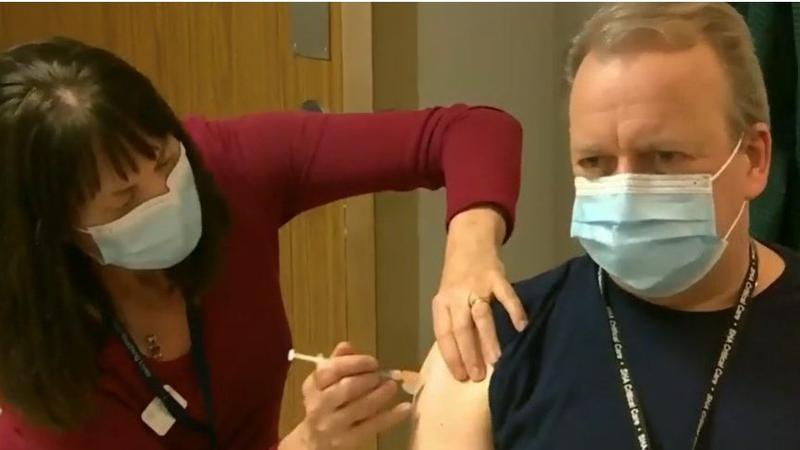
Marking one year of COVID-19 vaccinations in Saskatchewan
It was a process that took literally seconds at the time, but the first COVID-19 vaccinations done in Saskatchewan were a milestone.
Those first two shots were given one year ago Wednesday — one to Leah Sawatsky, a Regina emergency room nurse, and one to Dr. Jeffrey Betcher, the area department lead for critical care medicine in Regina.
“I felt very privileged, actually, to be at the front of the line. (It was) not something I thought would happen, but I think it was really a defining moment for us in terms of our fight against COVID,” Betcher said Wednesday.
He said he was excited about the shot but a little apprehensive as well, given the good and bad publicity that would end up being around it.


